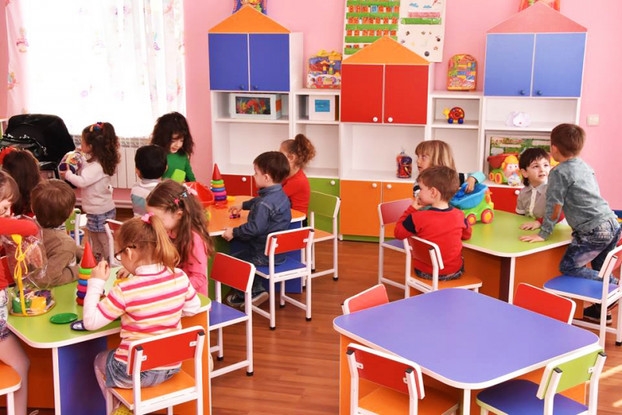UNICEF: 45% of Caregivers in Georgian Pre-School Institutions Are Unqualified
The Study of the Quality of Early Childhood Education and Care in Georgia was carried out jointly by UNICEF Georgia and the National Assessment and Examination Center under the leadership of international pre-school experts, revealed that 45% of caregivers are unqualified.
UNICEF says that most preschool staff members had not receive continuous professional training in the last ten years.
“The social status of caregivers working in the field is extremely low. The salaries for all workers in Early Childhood Education and Care, including directors, are also extremely low,” the organization says.
Moreover, the study revealed that the number of children per classroom is too high, especially in urban areas. UNICEF says in Tbilisi, there are 39 children on average per classroom, with some classrooms having up to 60 children, adding a large number of children per classroom has significant implications on the quality of education.
The study acknowledged that total enrolment of young children in preschool (69,5%) in Georgia is low compared to the European target (95%).
“Enrollment rates are lower for ethnic minority children, socially vulnerable and those living in rural areas. There are barriers regarding inclusion of children with disabilities, such as lack of adapted infrastructure, overcrowded groups, low competences among caregivers and social stigma against disability,” the study reads.
The organization added that in 2017 the Government of Georgia, with UNICEF’s technical support, developed and approved a Curriculum framework (The National Standards for Early and Preschool Education) and a Professional Competence Profile (Professional standards for Preschool Caregiver-pedagogues).
“The Law on Early and Preschool Education and Care adopted by the Parliament of Georgia with the technical support of UNICEF includes major innovations targeted to improving quality, access and equity in early childhood education and care throughout Georgia. One of the key innovations of the law relates to the introduction of mandatory national standards and standard-based authorization system of all public and private preschool institutions,” UNICEF stated.
By Thea Morrison
Photo source: Ambebi.ge












